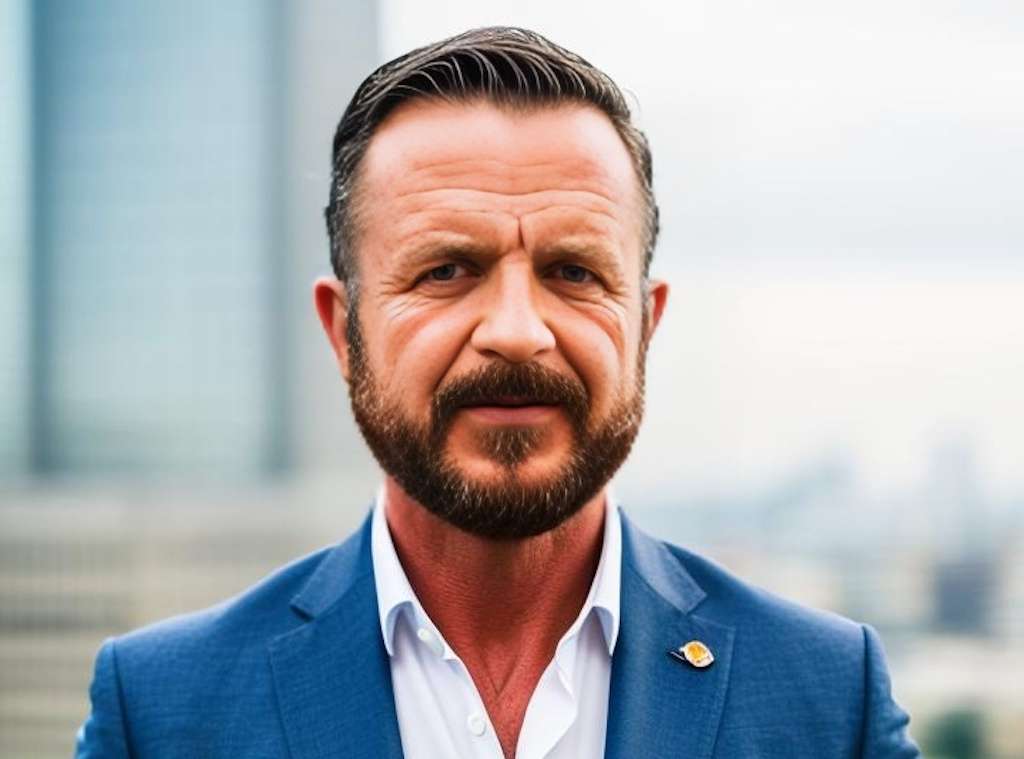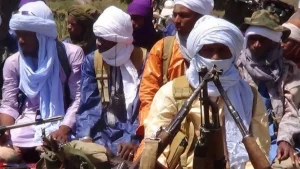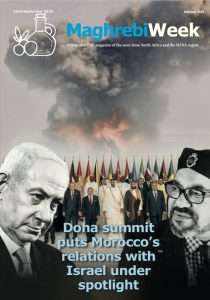Dan Jones: Kalashnikovs, coups, and foreign powers in the Sahel

The Sahel used to be the world’s diplomatic screensaver: always on, rarely noticed. Sand, goats, and the occasional French officer pretending it was still 1953. Now it’s the geopolitical VIP lounge, except the drinks are warm, the bouncers are juntas, and half the guests are armed to the teeth. If the Middle East was the crucible of late 20th-century geopolitics, the Sahel is the sequel nobody asked for but everyone’s watching. Jihadists, generals, and global powers are crammed into the same sandbox, and the result looks less like statecraft and more like a knife fight in a phone booth.
For years, Western diplomats filed it under “someone else’s problem.” It was Africa’s appendix: vaguely important, mostly ignored, only noticed when it turned septic. The region got pigeonholed into counterterrorism, migration, or humanitarian aid. That framing is dead. The Sahel today is the frontline of a global contest stretching from the Red Sea to the Atlantic. It’s a place where non-state actors outlast states, military rulers outlast promises, and Moscow, Beijing, Ankara, and the Gulf queue up to cash in on the wreckage.
Jihad Without Borders
Borders mean little in the Sahel. Think chalk lines on sand that no one respects. Al-Qaeda’s local franchise, Jama’at Nusrat al-Islam wal-Muslimin (JNIM), roams Mali, Burkina Faso, and Niger like it owns the place. Its rival, the Islamic State in the Greater Sahara (ISGS), has carved out its own turf and happily slaughters civilians when bored. Meanwhile, Boko Haram’s zombie franchise staggers on in Nigeria’s northeast and oozes into Chad, Niger, and Cameroon.

What makes these groups dangerous isn’t ideology. It’s pragmatism. They slip into the cracks left by broken states: tribal rivalries, economic despair, and governments that only show up to extort. When armies act like bandits and courts don’t exist, insurgents step in. They hand out rough justice, provide livelihoods, or just bribe people enough to shut up. They’re nimble, networked, adaptive and unburdened by the brittle bureaucracies collapsing around them. That’s why in 2024 the Sahel accounted for over half of global terrorism deaths. Five of the ten most terror-hit countries are here. Not bad for a region most foreign ministries couldn’t find on a map twenty years ago.
Coups as the New Normal
Forget ballots; the barracks are in charge. Since 2020, Mali, Burkina Faso, and Niger have all swapped presidents for colonels. Each coup was wrapped in the usual packaging: security, sovereignty, and a “new dawn.” Each pushed Western partners away, especially France, while wrapping themselves in cheap nationalism like a flag bought from AliExpress.
At first, people cheered. Corruption gone! Stability coming! (Spoiler: it didn’t). Juntas quickly settled into the role of gatekeepers, flogging access and contracts to whoever backed them hardest. Elections? Delayed. Critics? Silenced. Insecurity? Still rampant. Coups here aren’t interruptions; they’re the business model.
Burkina Faso is the poster child. Two coups in 2022 left Captain Traoré in charge, a man barely old enough to rent a car in the US without a surcharge, but perfectly fine running a fragile state. Mali isn’t much better: Assimi Goïta seized power promising renewal, then renewed only his own tenure. Niger followed suit in 2023, ejecting President Bazoum and leaving Western diplomats scrambling to re-book their hotels. Democracy in the Sahel isn’t dying; it’s already buried, and the juntas are selling tickets to the wake.
Great Power Games
Both nature and geopolitics abhor a vacuum. France was chased out of Mali and Niger under a hail of insults, and everyone else moved in.
Russia barged in first with Wagner. Bamako and Ouagadougou welcomed them, happy to swap lectures on democracy for Kalashnikovs and troll farms. Russia gets concessions, influence, and another foothold against the West. The juntas get regime survival. Ordinary people? They get neither security nor justice, just new masters.
China plays a longer game. Belt and Road projects, infrastructure deals, mineral rights. Niger’s uranium isn’t just Niamey’s problem; it’s Beijing’s insurance policy for its nuclear sector. While Russia posts selfies with juntas, China builds roads to mines and quietly locks in supply chains for decades.
The Sahel today is the frontline of a global contest stretching from the Red Sea to the Atlantic. It’s a place where non-state actors outlast states, military rulers outlast promises, and Moscow, Beijing, Ankara, and the Gulf queue up to cash in on the wreckage.
The US still clings on, mainly through its drone base in Agadez: a billion-dollar facility peering at the desert through expensive optics. Washington’s priority isn’t empire-building but insurance: stop the Sahel spawning the next terror group that hits Europe, which in turn has hundreds of prime-time news anchors having to quickly learn how to pronounce “Ouagadougou.”
Türkiye is in the mix too, offering construction projects and training, while Gulf monarchies bankroll mosques, charities, and commercial ventures. Everyone’s carving out turf. Nobody’s leaving. The Sahel is no longer “peripheral”; it’s prime geopolitical real estate.
Why It All Collides
Each faultline feeds the next. Insurgency breeds coups. Coups replace what’s left with generals. Generals need foreign patrons to survive. Foreign competition supercharges the insurgency. Rinse and repeat. The Sahel is locked into a feedback loop of fragility. One country sneezes, its neighbour catches pneumonia.

Mali is Exhibit A. The 2020 coup pushed out France, invited Wagner in, and doubled the jihadist problem. Attacks spiked, humanitarian conditions worsened, but Bamako clung to Moscow. For the Kremlin, it was a cheap win. For Malians, it was another turn of the misery wheel.
Why It Matters
The Sahel is a crash-course in the wars of the future: conflict will no longer be big states clashing with armies on borders; it’ll be weak states collapsing under the strain of insurgency, while global powers circle overhead.
The spillover is already global. Migration surges north into Europe. Extremist networks stretch across the Mediterranean. Energy markets twitch because of Niger’s uranium. And the West’s playbook; drone strikes, aid projects, and democracy workshops, has proven about as effective as a map of Mali drawn by the French Foreign Office. Kill a leader, another steps up. Fund a programme, corruption eats it. Preach democracy, get shown the door. Into that void walked Moscow, Beijing, Ankara, and Riyadh, each offering deals without sermons.
When the Dust (Doesn’t) Settle
Ignore the Sahel and it will come knocking on your borders, your energy grid, and your politics. It isn’t some distant dust bowl anymore; it’s the live demonstration of 21st-century conflict.
READ: Ziyad Motala: The West’s hollow recognition of Palestine
If we take Libya as the warning shot: proof that you can’t topple a dictator, sprinkle on democracy, and expect stability to magically appear. The West walked away, and the vacuum filled with militias, smugglers, and foreign meddlers. The Sahel is the feature-length version of that same mistake, only spread across half a continent.
The views expressed in this article belong to the author and do not necessarily reflect the editorial policy of Maghrebi.org. Dan Jones is an intelligence specialist with over 25 years of experience, including the last 10 operating in Libya. He is the co-founder of Raedan Group, a UK-based private intelligence firm helping clients stay three steps ahead in some of the world’s most high risk environments.
If you wish to pitch an opinion piece please send your article to grace.sharp@maghrebi.org
Want to chase the pulse of North Africa?
Subscribe to receive our FREE weekly PDF magazine













